Part 7: Chapter VII: The Great Alpine War. (July 7th, 1875-January 1st, 1883)
Chapter VII: The Great Alpine War. (July 7th, 1875-January 1st, 1883)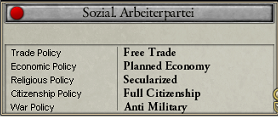
The cafe is nice, is it not, brother? The agents of Ludwig II, may his name be cursed, have never found us here. You may speak freely, for you are among friends. The Socialist Worker's Party of the South German Federation may not legally...exist, but we have eyes and ears everywhere from Baden to Galicia.
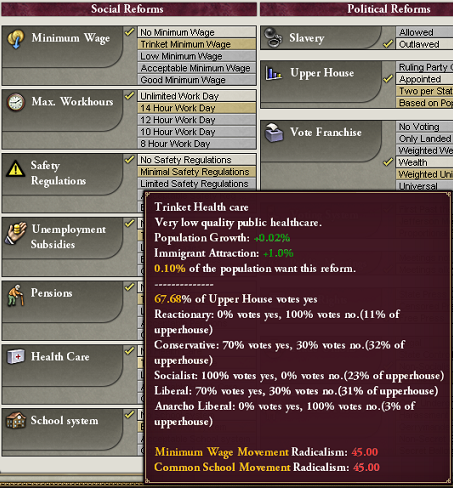
Keep the people healthy, happy, and out of politics. That was Ludwig's takeaway from the Reichstag's meeting. He would preserve the oligarchic wealth-only state, and he would preserve the Reactionary rule that maintained a strict South Germans only rule on participation, but he would give the people the reforms they desired. The oligarchs and the aristocrats might have been at odds with each other over state intervention in industry, but they were united in their desire to keep us out of their squabbles, even if that meant trying to buy off our laborers with token concessions.
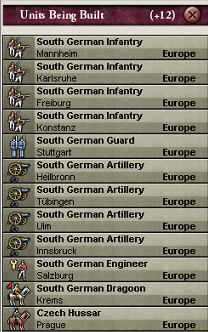
The rampant militarism of South Germany is truly something to behold. In the half a year between the formation of the Federation and the Great Alpine War Ludwig increased the size of the army 50%, and today in 1883, a mere seven and a half years later it is up to 60 brigades, from 25 when the Federation was formed. Who pays for the guns, the salaries of the soldiers, the benefits to the grieving widows of those that died in the mountain snow? The poor, the underfed and overtaxed? The workers, of course!
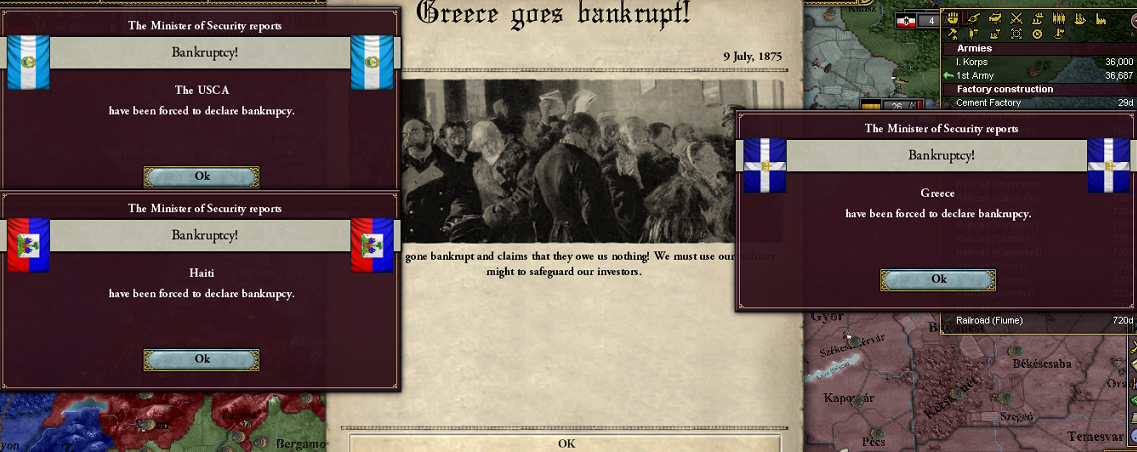
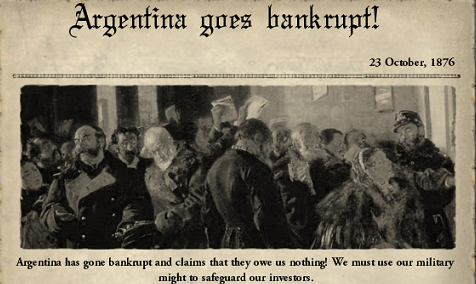
The transition from struggling, scrappy young power to the replacement of the Habsburgs have made our elites complacent and arrogant. They laugh at the misfortunes of our brothers abroad as they bemoan the few miserable coins that the most indigent of the Earth are unable to repay them.
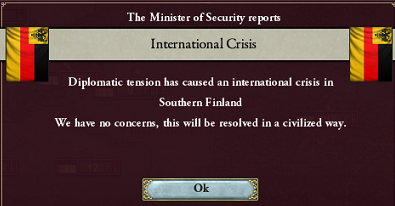
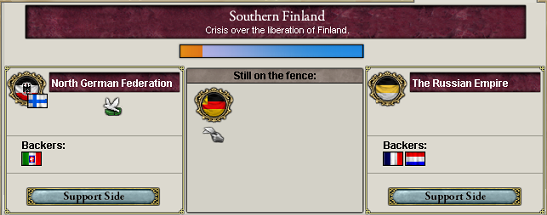
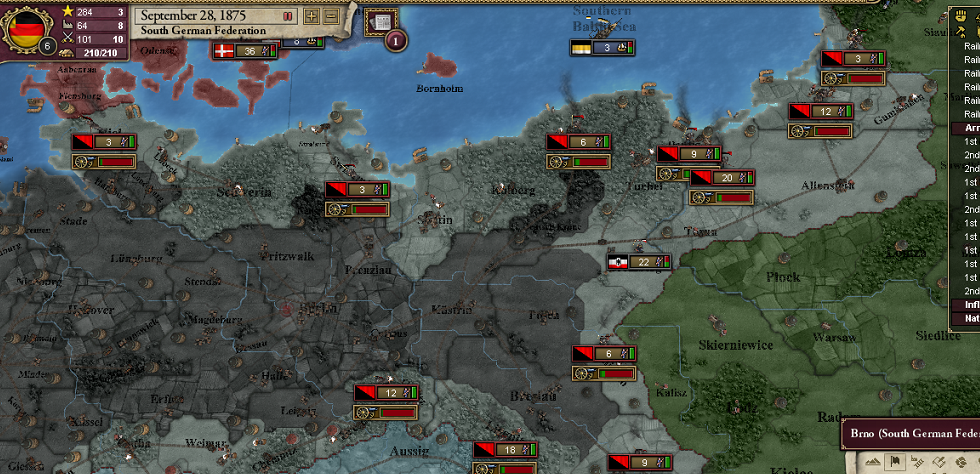
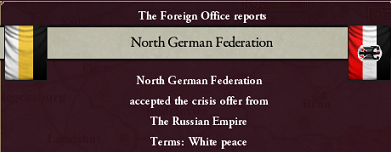
The elites play their little games. The bloodsucking leeches of Berlin cared not about the oppression of Finland, they cared about weakening their great eastern rival! The other powers of Europe didn't care about the Tsar's "rightful claim to Finland," they cared about preventing the anti-monarchical government in Berlin from spreading its tentacles any further in Europe. Hypocrites, the lot of them! It took the martyrs of Germany rising in a massive, failed revolt to persuade Berlin to give in rather than fight France and Russia while half their country was in open revolt.
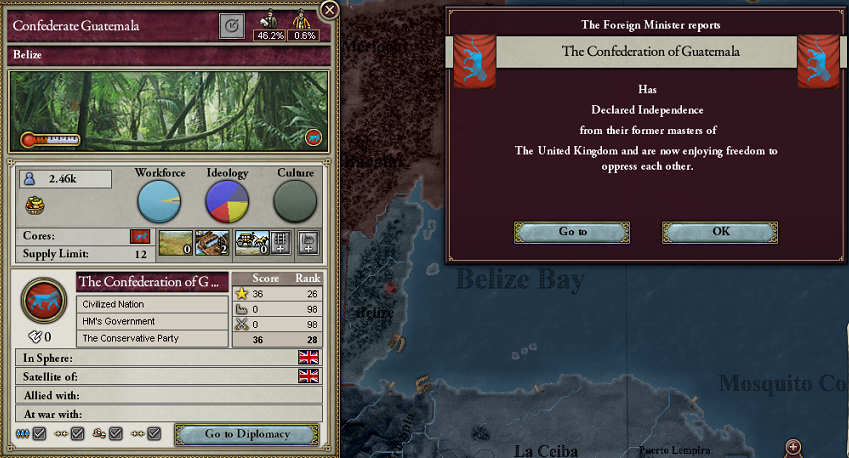

If you create an "independent nation" with less than 3,000 workingmen, its bankruptcy is not a surprise to any man. The United Kingdom should have realized this before it spun off Belize. We wish Belize the best in freeing itself of British oppression, but its viability as a nation is deeply questionable.
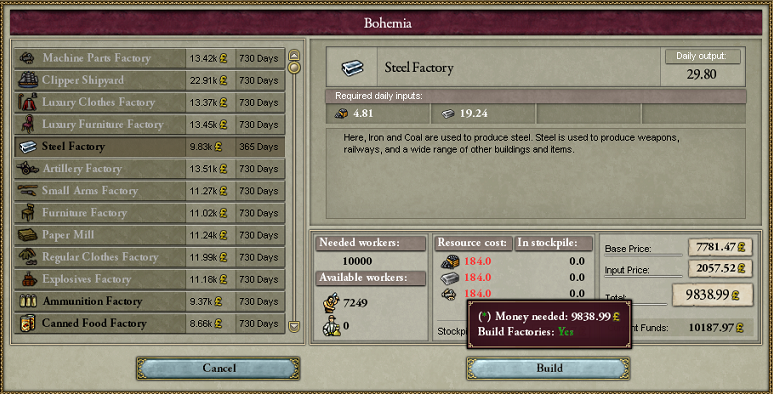
The lazy, stagnant Habsburg monarchy had never realized Bohemia's fantastic potential for Steel production. Ludwig's government did. The steelworkers of Prague are one of our biggest chapters! Germans and Czechs laboring together, fighting together for their basic rights: a pension, workplace safety. Some day, comrades.
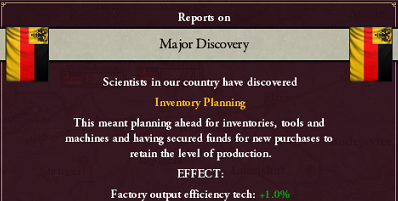
Our factories have grown productive and our industrial, though still in its infancy, is one of the strongest in the world. Once we get going, we will be the envy of the world, and once the workers own the means of production, South German Federation's working men will be the model of the toilers of all lands.

A pathetic display: having failed to beat even the weakest opponent in Europe, the United Kingdom has been reduced to beating up weak states in South America for the sake of the greater glory of Brazil and to make its military feel better, that they can defeat some opponent.
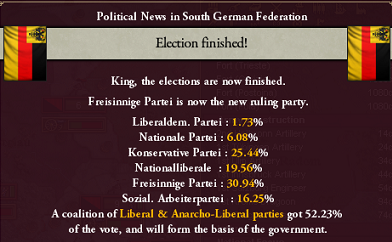
Even the bourgeois have turned on Ludwig, after he blatantly overturned an electoral result that had their lassiez faire policies win and re-instituted his Reactionary regime. Our "betters," wishing to turn the South German Federation into the North German Federation, are quite upset with his heavy-handed interference in industry. One day they will wound each other so badly that the working man will be able to seize power from both overnight.
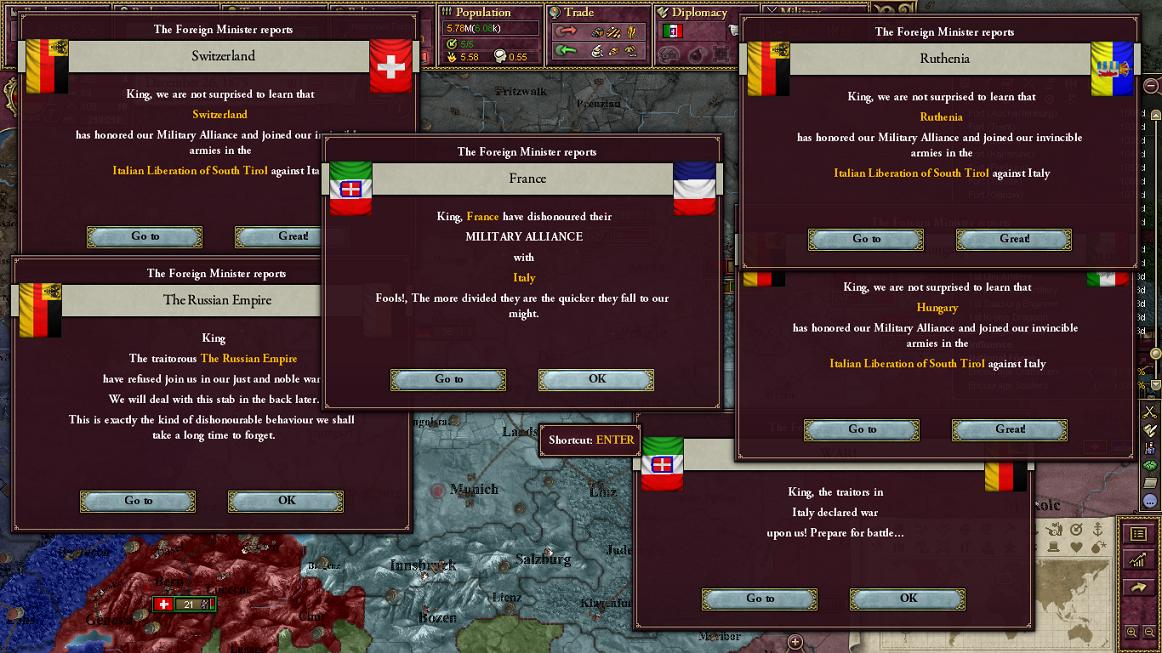
War came. France and Russia, loathe to fight each other, abandoned their respective allies, leaving South Germany and its Swiss partner alone against the Italians, come to "repatriate" South Tyrol to Italy. The workers of South Tyrol have no interest in joining Italy, and in this imperialist war of capital vs capital Ludwig, at least, restrained himself from using the draft. The higher taxes and the horrors of Italian incursion in our southern territories were complications in the lives of our brothers, but no one can say that Rome did not start this conflict.
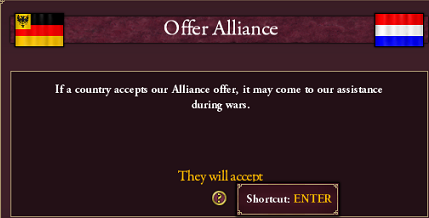

South Germany versus Italy would be a fair fight. King Ludwig had no intention of fighting fair. The Dutch, with their powerful, yet compact, army and mighty navy would be a solid partner, though it would take time for them to march across France to relieve Switzerland. For now, SGF and Switzerland would have to fend of the Italians alone...or at least as alone as they could until the Hungarians could come to Munich's aid. The massive conscript levy in Hungary produced the cannon fodder needed to preserve the defense of South Germany...Munich might like its elite standing army over the egalitarian risk of the levée en masse but Budapest could afford no such luxuries. Once again, as they had since Maria Theresa's time, the Hungarians came to the rescue of Austria (though in theory Austria was a mere component part of a Bavarian-led union, "Austria" was the only name the majority of the SGF's subjects had ever known for their homeland).
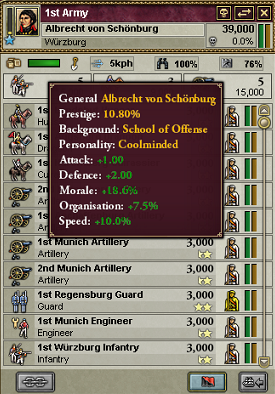
Albrecht von Schönberg, the most famous general of the South German army since Joseph Miklas' death, isn't exactly a genius, but he does win. The government sent him and Viktor Wittmann's armies south to face off with the Italians, with the new third army off to relieve the Swiss.
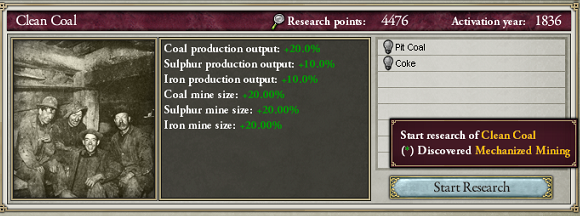
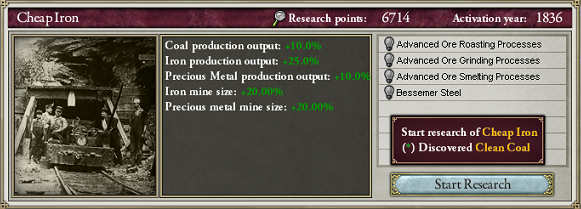
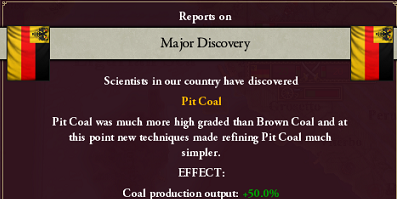
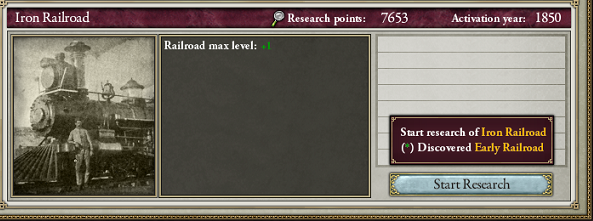
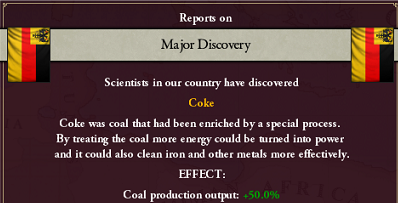
The armies of South German capital were stronger than their Italian counterparts, but the infrastructure in Austria was woefully lacking. Paradoxically, Munich spent much of the war encouraging young men to enter the coal mines rather than uniformed service, and SGF exploited resources (and laborers) to an extent the Habsburgs never did in Bohemian and Moravian coalfields, securing the resources that the Munich regime needed to push south.
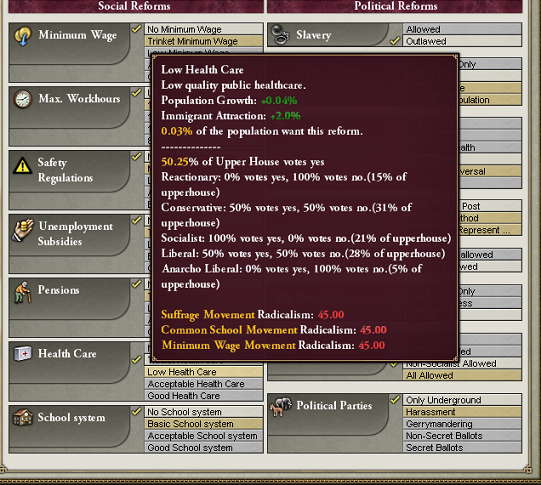
No, the Socialist Workers' Party of South Germany did not support the war, even after Ludwig expanded the health care concession, however it was a major enough move that there wasn't any open anti-war movement to speak of.
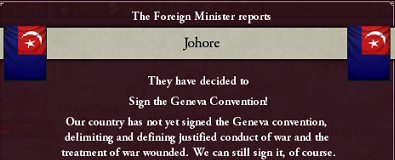
The governor-general of Johore declared his colony a full civilized nation, worthy of its own embassies and diplomatic protocol. If you're appointed by London, you aren't your own nation.
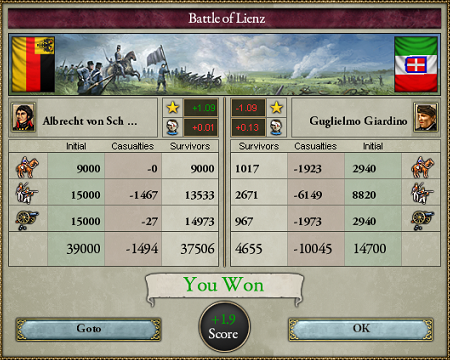
Pushing the Italian push above the Alps back was easy.
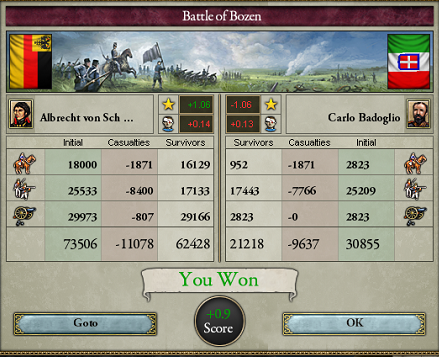
Battling entrenched Italian armies in the Alps was less pleasant. The military vowed to attempt to avoid such bloodbaths in the future, but it seemed unavoidable.
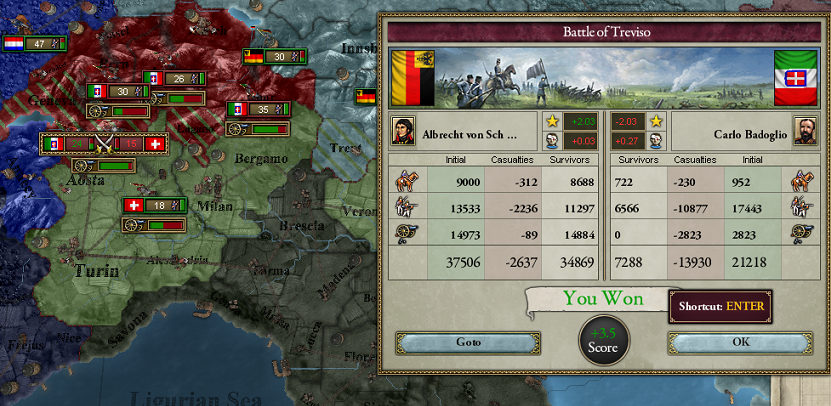
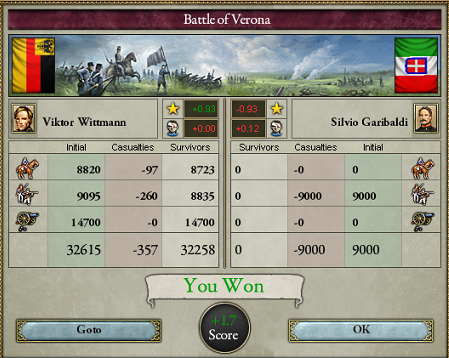
Pushing into Italy proper made the war far more palatable for domestic consumption. I doubt the workers in Rome felt similarly, though. Also, a moment of recognition for the suffering of Switzerland.
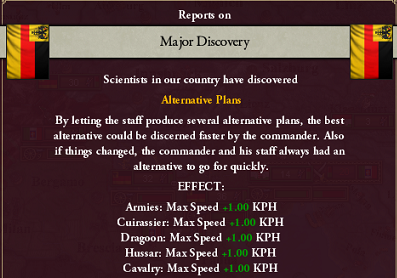
Faster armies are dangerous, they are far more effective at putting down revolts.
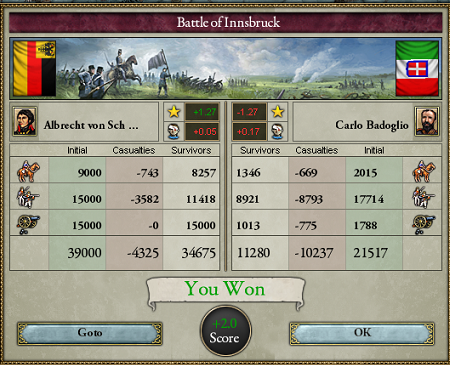
With the last penetration north of the Alps settled, the armies marched south.
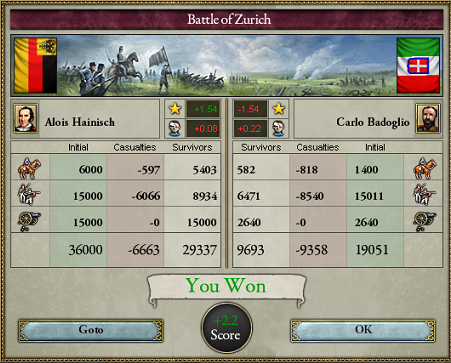
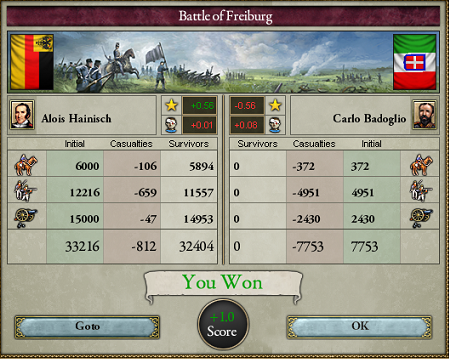
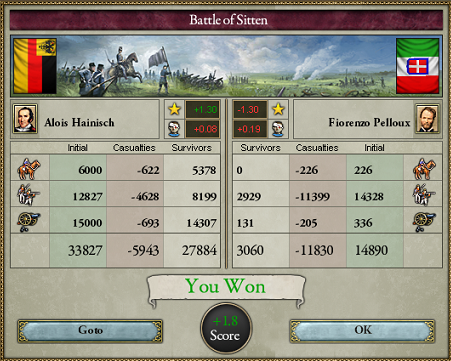
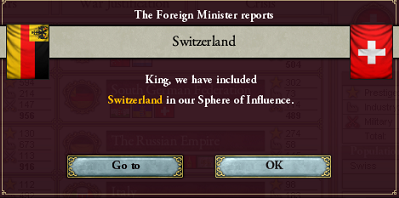
The new army acquitted itself well, ending the occupation of Switzerland and chasing the enemy army down to a rout in Freiburg. With the expulsion of the final incursion into Switzerland, the push into Italy moved much more quickly, and Ludwig signed a free trade treaty with a grateful Geneva, opening Switzerland up to cheap SGF goods, shutting down Swiss factories from the foreign competition.
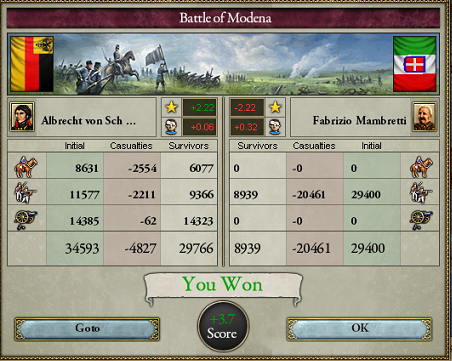
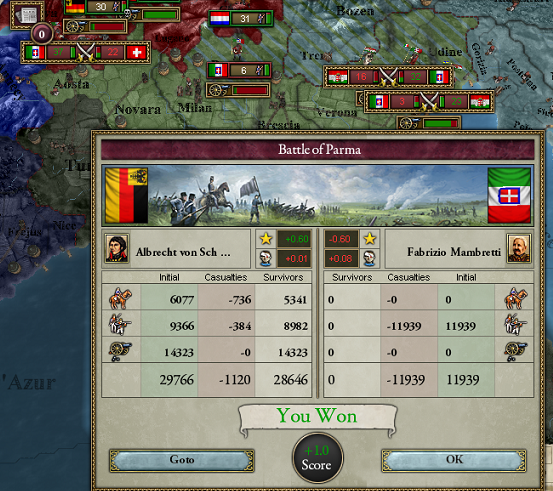
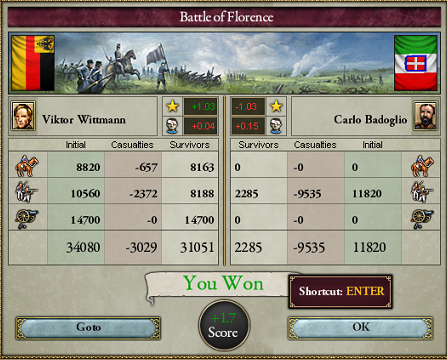
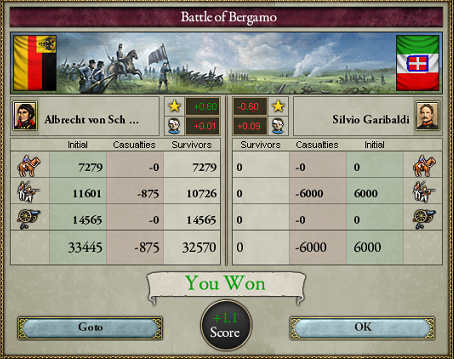
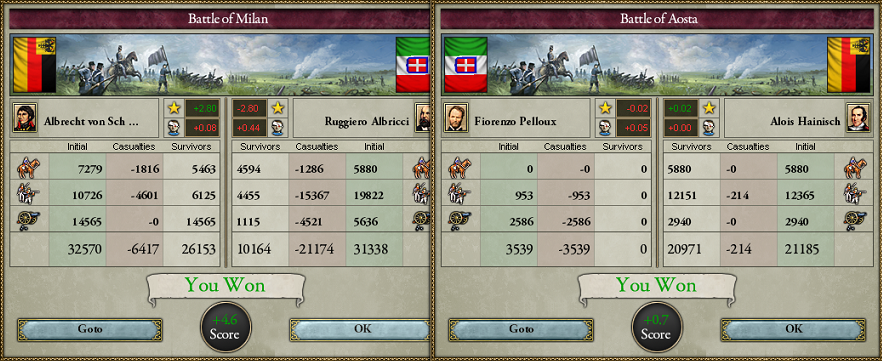
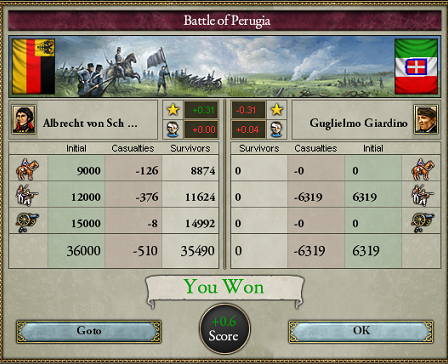
A soldier once told me how nice it was to get to see the Duomo of Florence, the canals of Venice, the Leaning Tower of Pisa, the Vatican, and so on. While I despised the war on general principles, I couldn't help but feeling a bit envious.
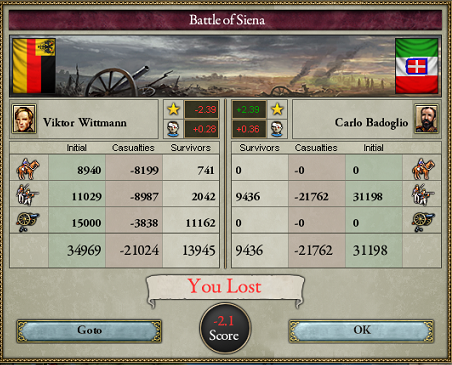
Then I remember Siena. Even the "elite" shudder at its mention, though they regret the loss of national prestige. Many of us here actually know men who perished at Siena, and the battle has a far more haunting tone.
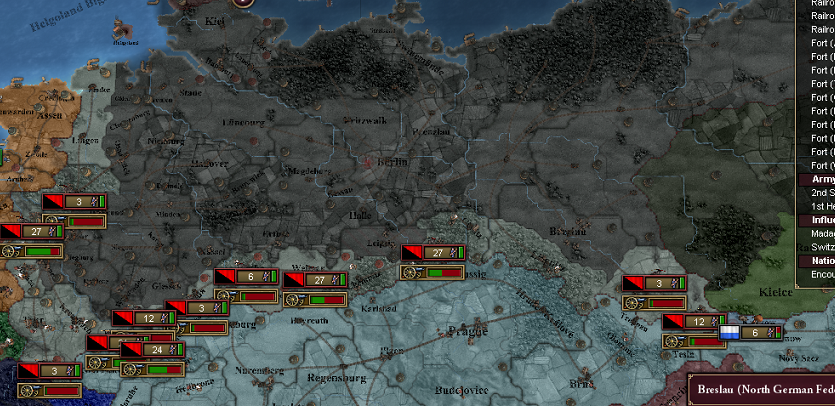
Failed revolutions to the north happen every day now. Someday, the parasitical government of Berlin will be disbanded. That day shall come.
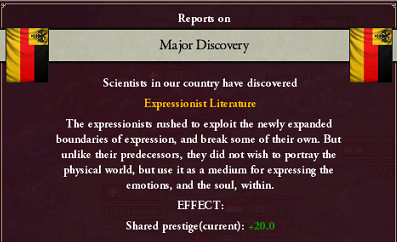
I haven't had a chance to read recently, no. Is there something I've missed?
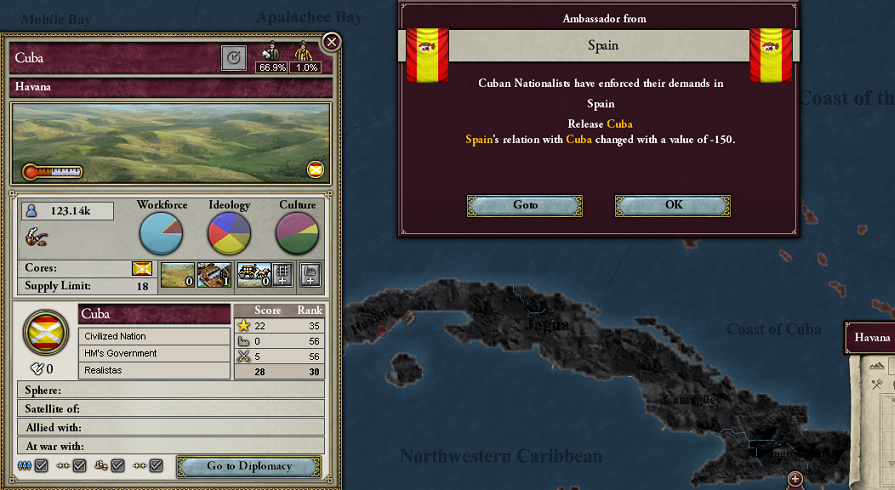
I hear Ludwig's plotting to strike a deal with the new "King" of Cuba to import cheap tobacco. While I applaud the end of Spanish colonial rule, I have to wonder if the imposition of a planter oligarchy with only the landed having a say isn't even worse for the average farmer.
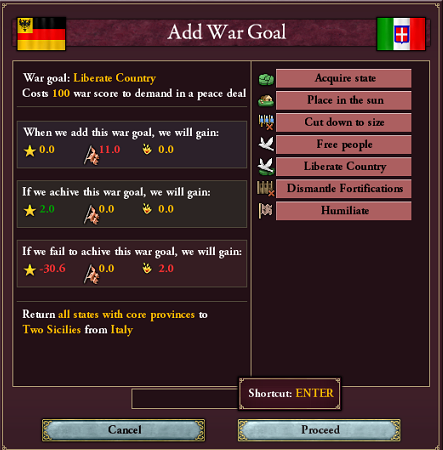
Ludwig's divide and conquer plan in action: split the five-year-old Kingdom of Italy in half and have its industrialized south split off from its more agrarian north. [EDITOR'S NOTE]Southern Italy is ridiculously covered in factories in this campaign for some reason. It's also more literate and more prosperous than the north. I have no idea why this happened.[/EDITOR'S NOTE]
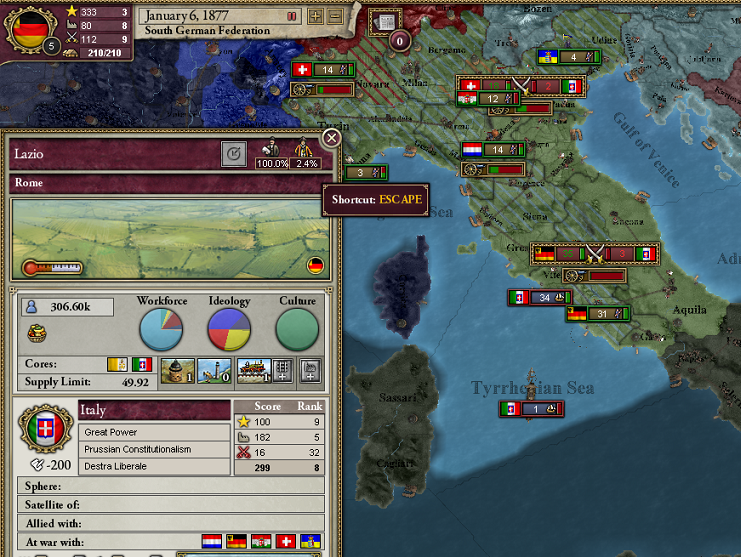
With the fall of Rome, Ludwig's demands were irresistible and Italy capitulated.
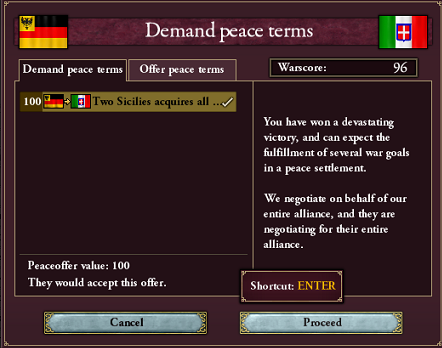
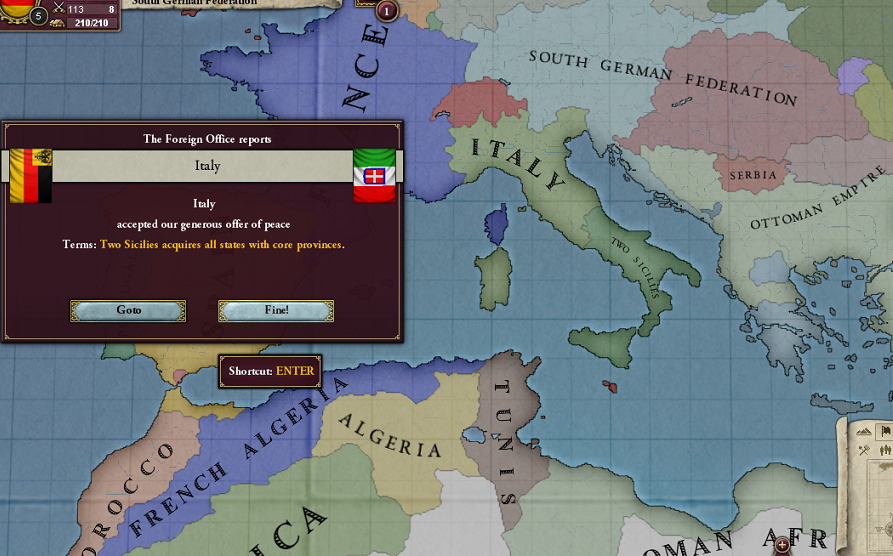

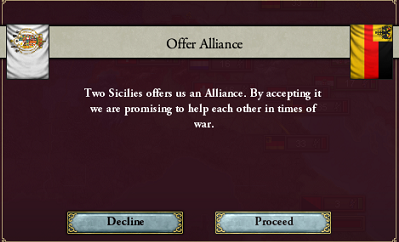
Forty percent of Italy's population and closer to 60% of Italy's industry went with Two Sicilies, which joined the SGF free trade zone and alliance, making SGF the the great power of the Eastern Mediterranean. The relatively prosperous Southern Italians have proven far more equal to Munich than Ludwig's other junior allies.
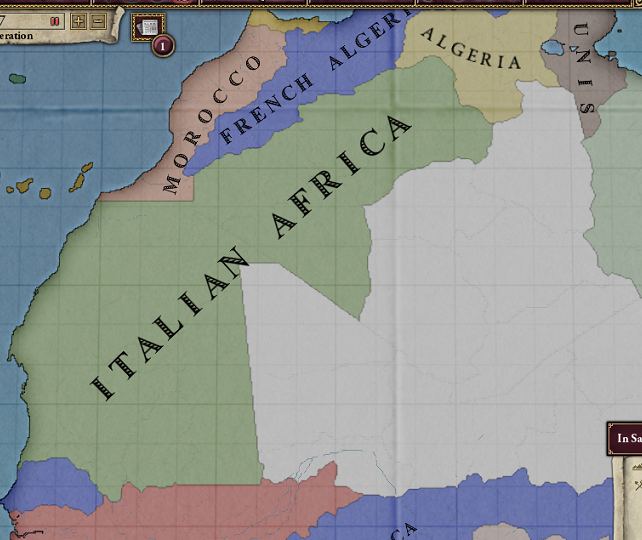
Italy consoled itself elsewhere.
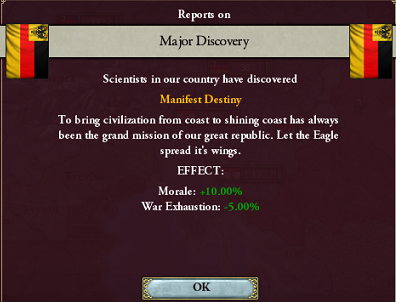
Ludwig arrested these scientists for calling the SGF a republic and then shot them for misusing an apostrophe.
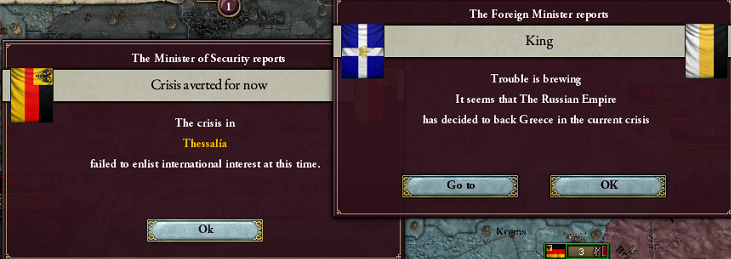

Oppressed people attempted to petition the Concert for freedom, Europe yawned (and, in the case of Thessaly, the Turks were saved by their own pariah status).
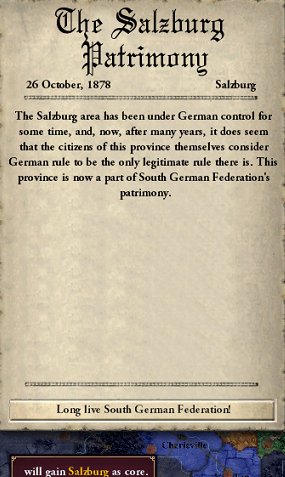
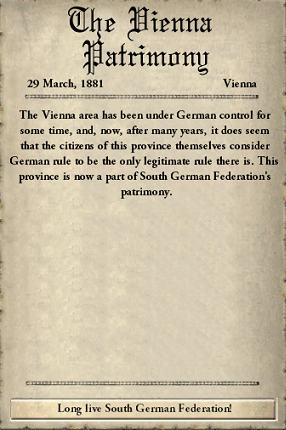
The elites of Austria finally accepted the SGF and their place in it. Their Czech and Polish workers grumbled.
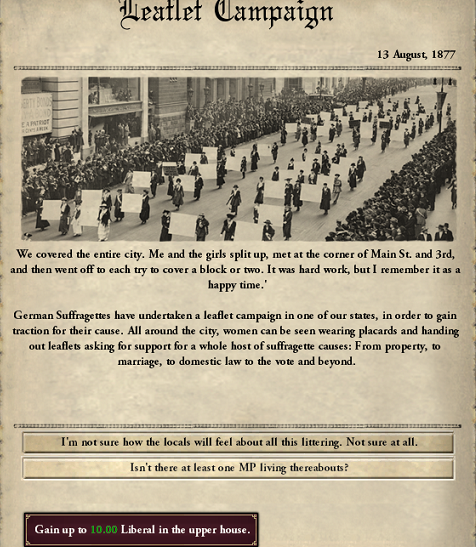
Some see women's rights as a bourgeois sideshow, I see the suffering of sisters who have been beaten senseless by their drunkard husbands after spending the day molested at the mill by a lecherous supervisor for half pay and I say that the suffragettes can only help us.
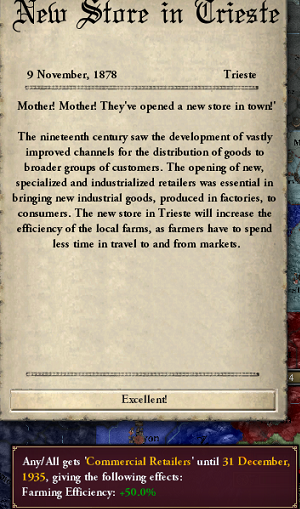
Bourgeois frivolities like new stores do not help us, though.
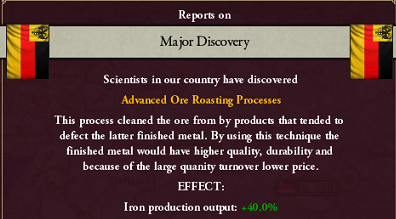
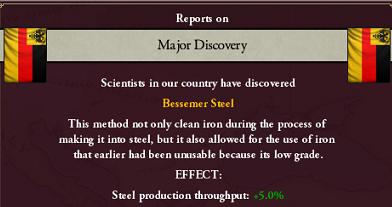
Steel is the way of the future. We will build a new world made of steel, comrades.
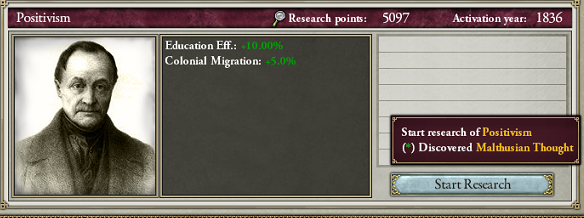
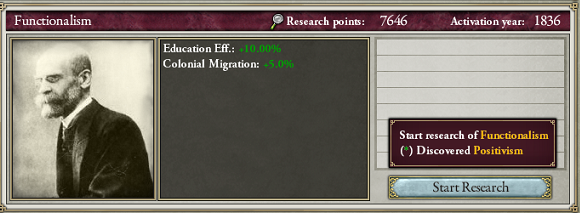
Ludwig decided that our comrades' inability to read was slowing down the nation. We agree with him, for once.
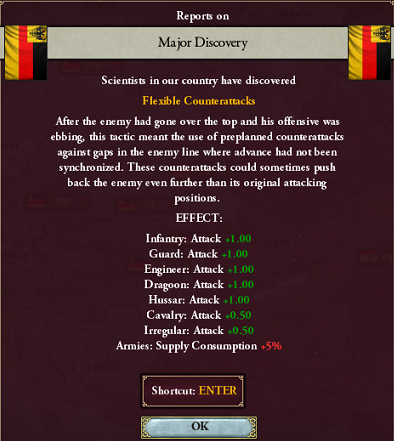
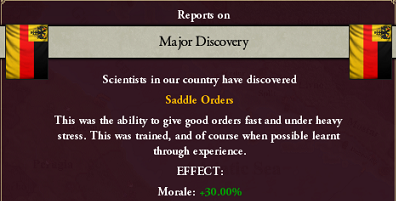
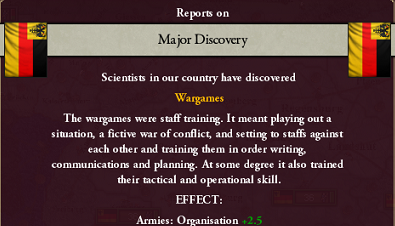

The army developed new techniques for the next war. Every right-thinking man and woman shudders at the thought of the next war, but the fat cats in Munich long for it. The biggest internal contradiction of capitalism is that the elites must fight each other to maximize their share. They'll fight and they'll fight, using our blood, until they're bled dry.

Hearing of a French plot to depose the Merina monarchy in Madagascar and directly administer the island, Ludwig signed a mutual defense treaty with the island nation to keep it out of European hands and secure sole rights to it.


He then proceeded to do the same with both of the two remaining native states in sub-Saharan Africa. Not so much for what they offered, mind, as to prevent other powers with actual navies and force projection from annexing them. Sokoto produces little of what we need, but its one and a half million subjects have proven a fantastic captive audience for our manufactured goods, seeing as they have no other supply.
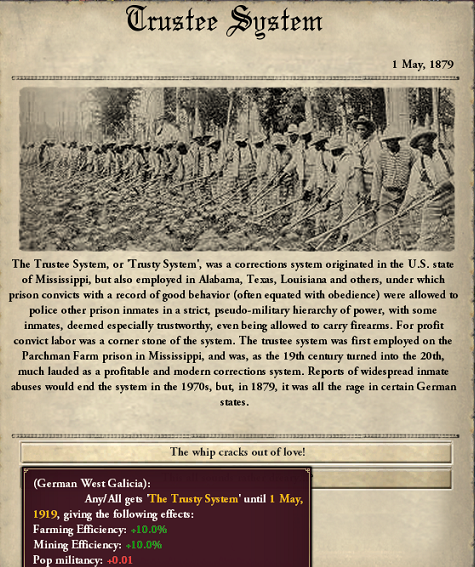
Never go to a Polish prison, brother.

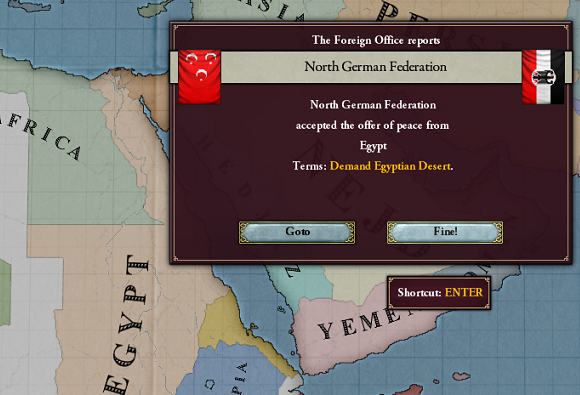
In one of the more anomalous wars of the period, the Ottomans persuaded the North Germans to help them conquer a useless stretch of sand in southern Egypt.
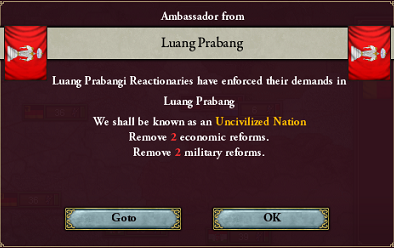
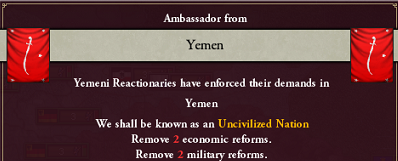
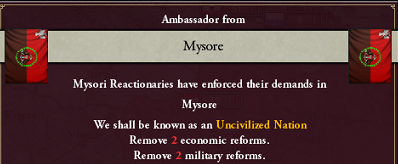
Some native states retreated further into themselves, though it's worth pointing out that the coup in Mysore ended British dominion there.
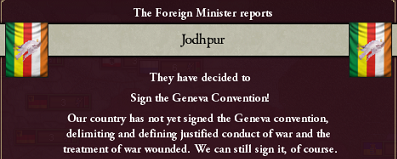
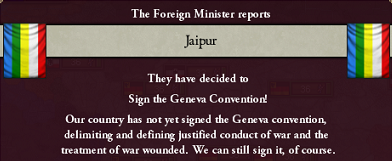
Others adopted Western ways.
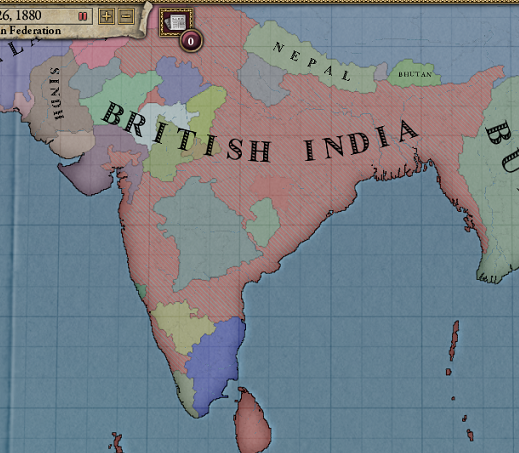
Those natives directly ruled by the British chose to rebel, though I hear the mopping up is nearly complete now.
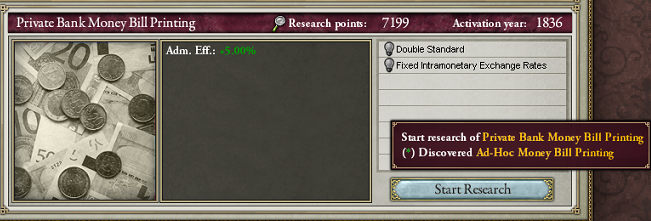
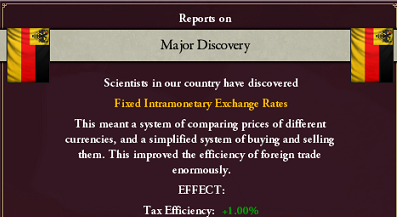
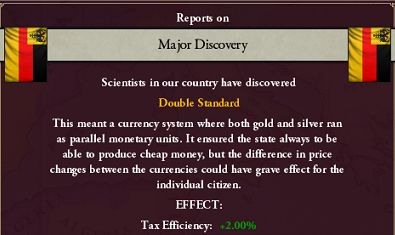
Ludwig's government refined the tools by which they bleed us dry of our lifeblood.
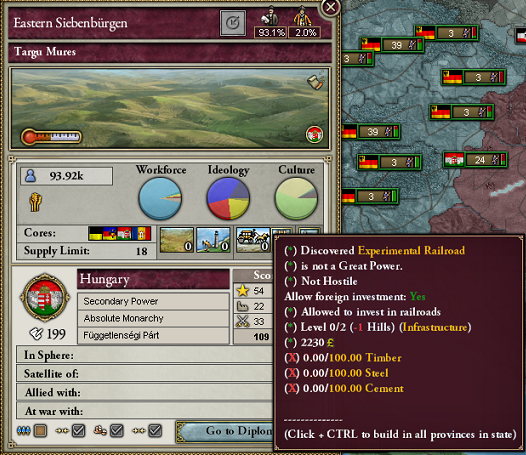
They also financed the construction of a complex rail system in Hungary.
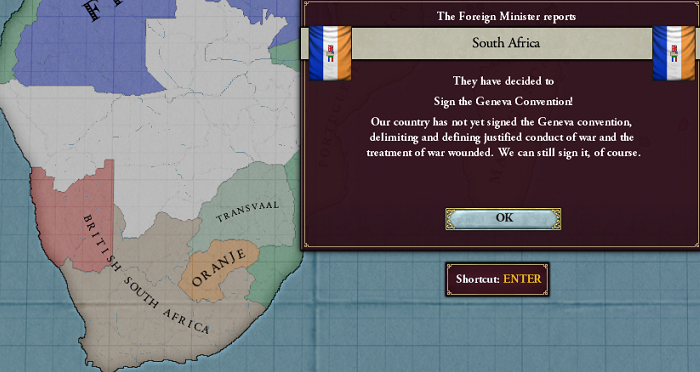
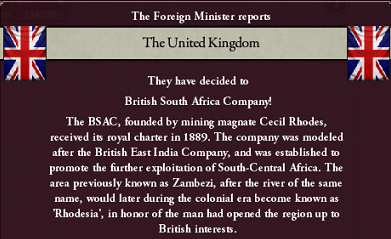
The word Rhodesia does not sit well with me.
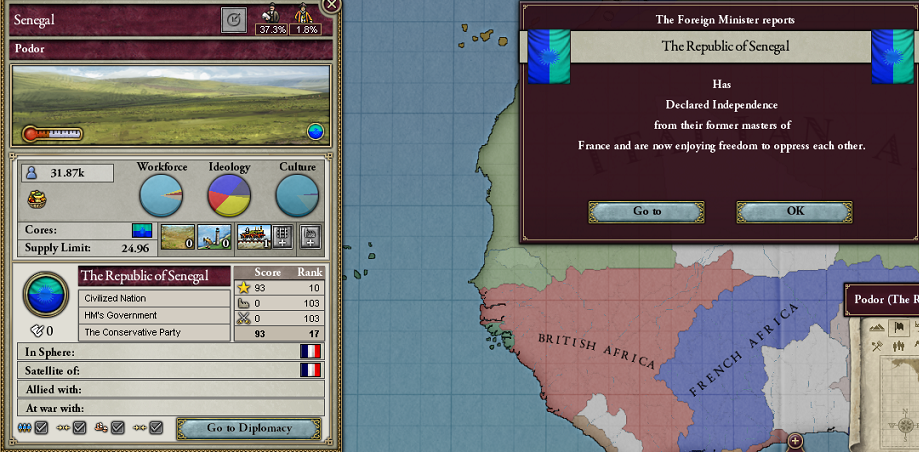
I cannot tell Senegal from Italian Africa on the map. The cartographer must be colorblind.

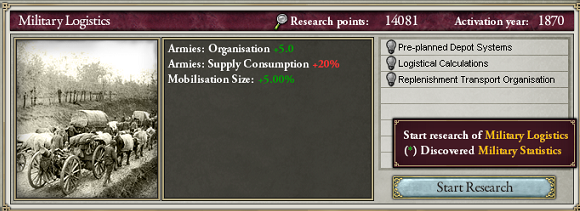
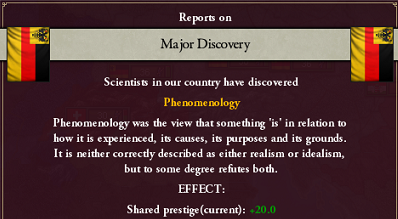
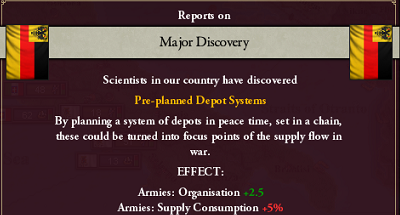
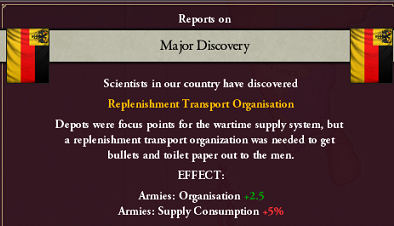
The fruits of modern philosophy and modern communication technology put to the purpose of warfare and imperialism.
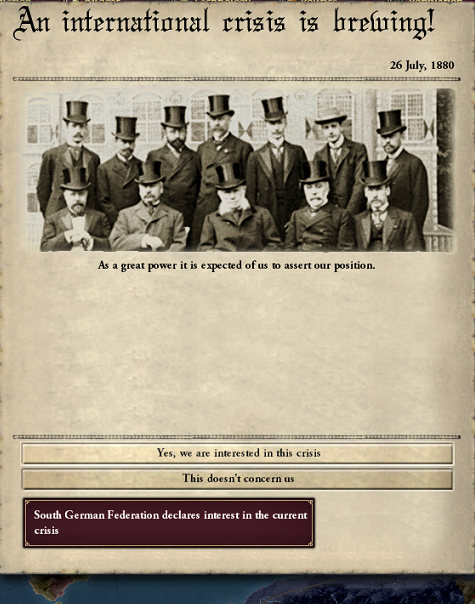
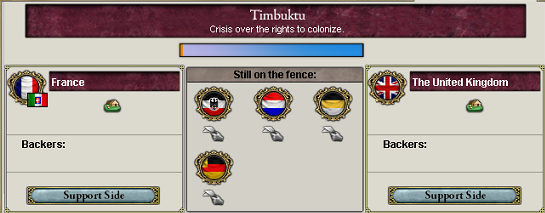
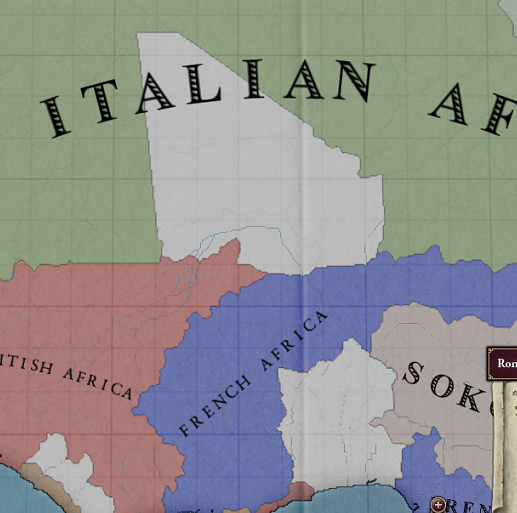

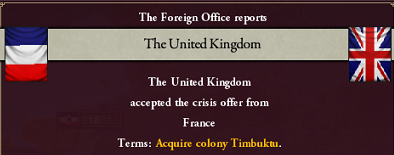
Speaking of imperialism, the farcical French attempt to prop up Italy met with the response it deserves. No one likes the British Empire, but the expansion of the Italian one to cover the entire Sahara is a flat out absurdity.
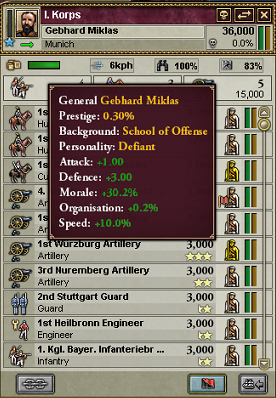
Like father, like son. Miklas' boy has become the new wunderkind in Munich. He longs for a war to prove his worthiness to the Miklas name.
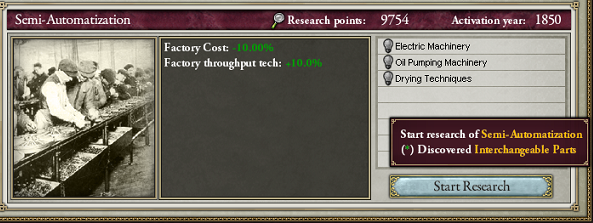
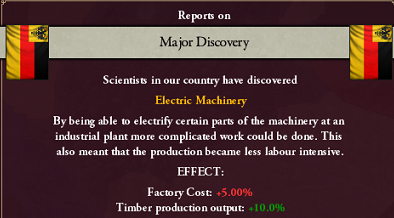
What exactly is throughput? I'll tell you. It's overclocking...throughput leaves the ratio between the input and output in the factory intact and merely increases both numbers. In practice, that means it increases our working hours. Why is it desirable, again?
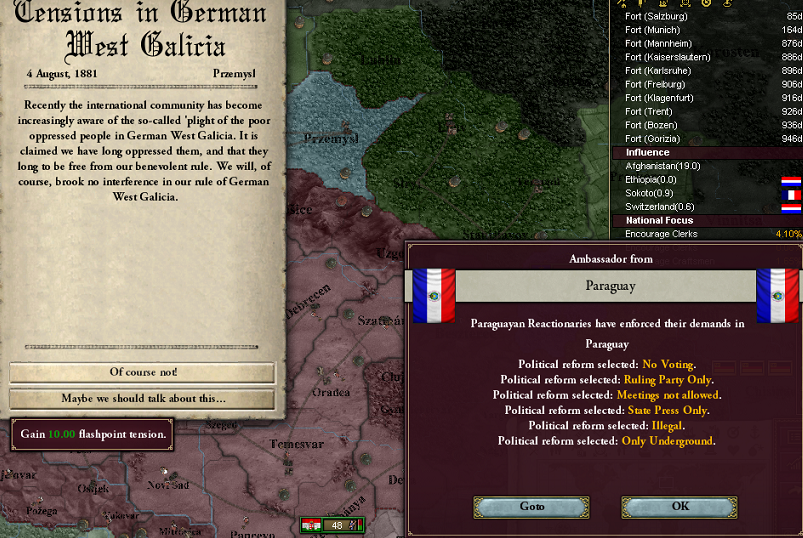
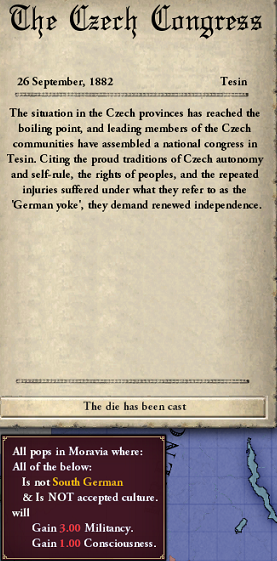
Our Polish brothers have been restless...almost as restless as the Czechs.
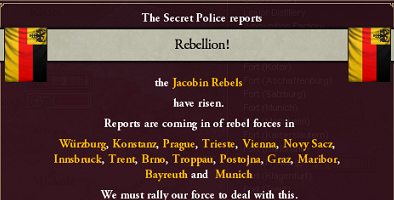
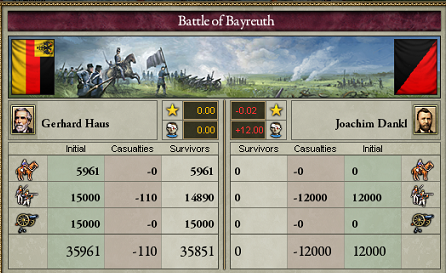
Foolish Liberals...now is too soon! You strike when the elite has been broken by conflict with other elites, when it has no choice for survival but to give in, not when it has one hundred eighty thousand men in arms with nothing better to do but shoot at us and nearly a hundred thousand Hungarians who eagerly come across the border to do the same.
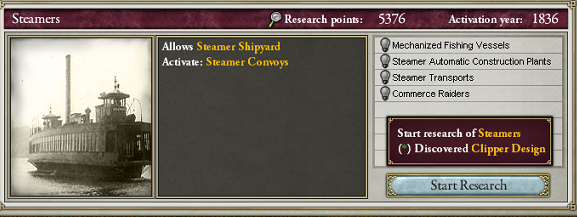
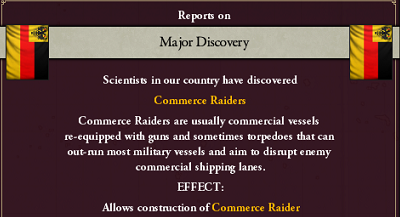
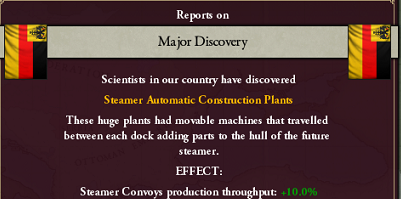
The day may come when South Germany's ships are not wooden. That day is not yet here.
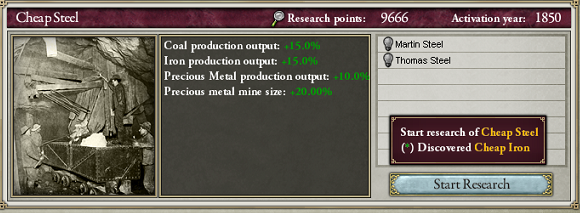
Steel. Someday, in the world that is to come when the workers own their own labor, I'd like to be the foreman at a steel plant. I apprenticed at one for a while before I was chased out for being a radical, you know. Steel is the future.
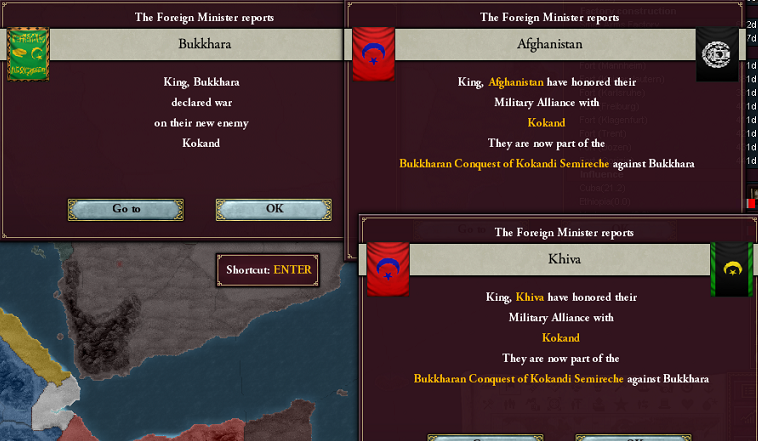
The partition of Kokkand is coming to an end, as Afghanistan puts an end to the ambitions of the Emir of Bukkhara.

I haven't read Darwin, no. No comment.
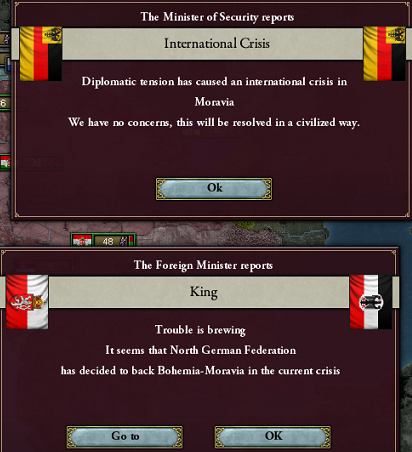
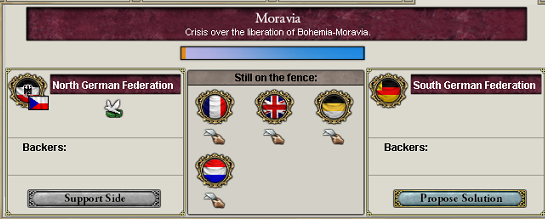
We're in quite the predicament, are we not? The Czechs are demanding their freedom and hope to take our steel mills with them. Moravia is a third German and Bohemia closer to 40%, and the Czechs knew that if they did not make a break for it now, their states would be overwhelmingly German soon. Ludwig's Residency policies of discriminating against all non-Germans have brought this upon Munich, and Berlin is championing their release. Who do we side with? We merely pressure Ludwig to perhaps allow us to govern for him, in hopes that full citizenship will bring the Czechs into the fold. Will he? Almost certainly not...and yet, I can see that he has a grudging respect for us. Our planned economic model is far more to his liking than the Lassiez Faire policies of the Liberals, whom he hates more than anything. The day will come when the withered Reactionary reed upon which Ludwig leans snaps, and when that day comes, he may turn to us. Be ready.
South German demographics:
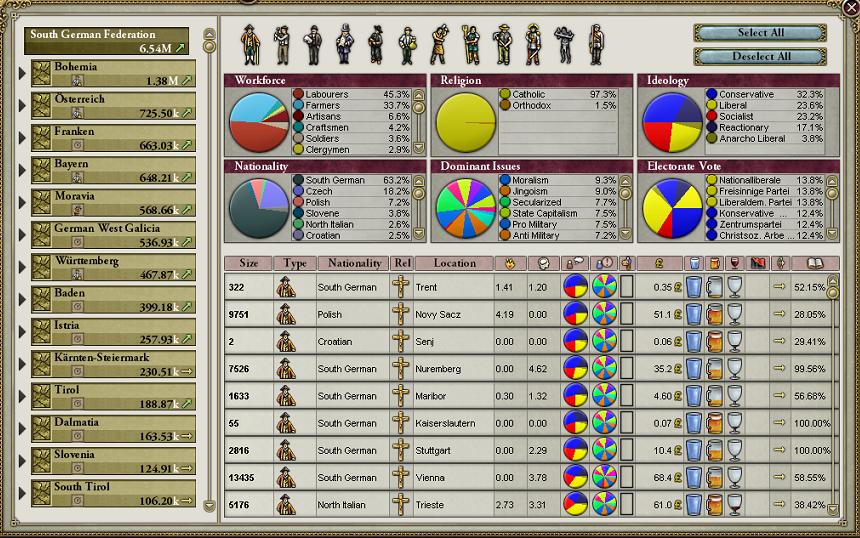
Moravian Demographics
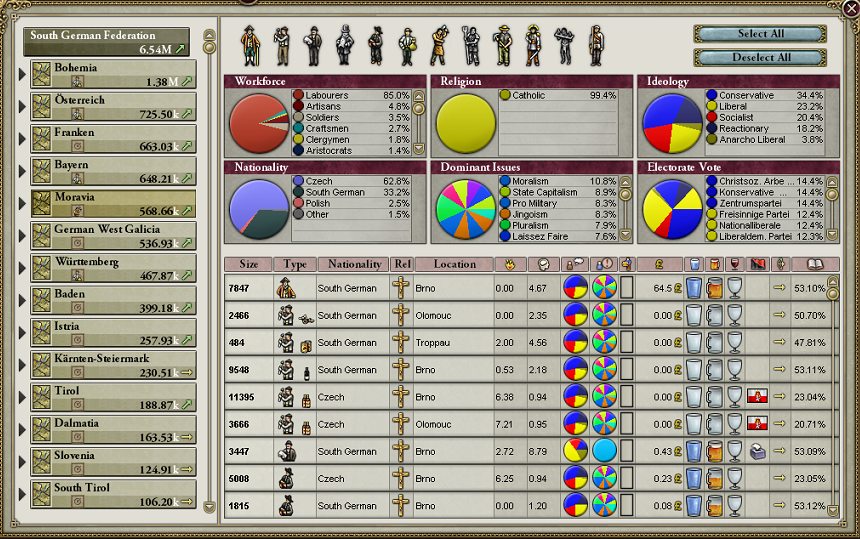
Economics
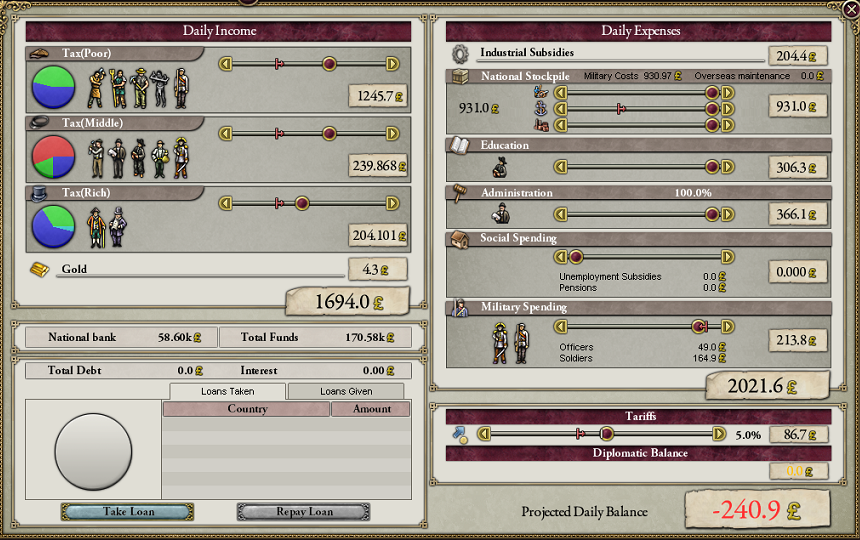
The World, 1883
